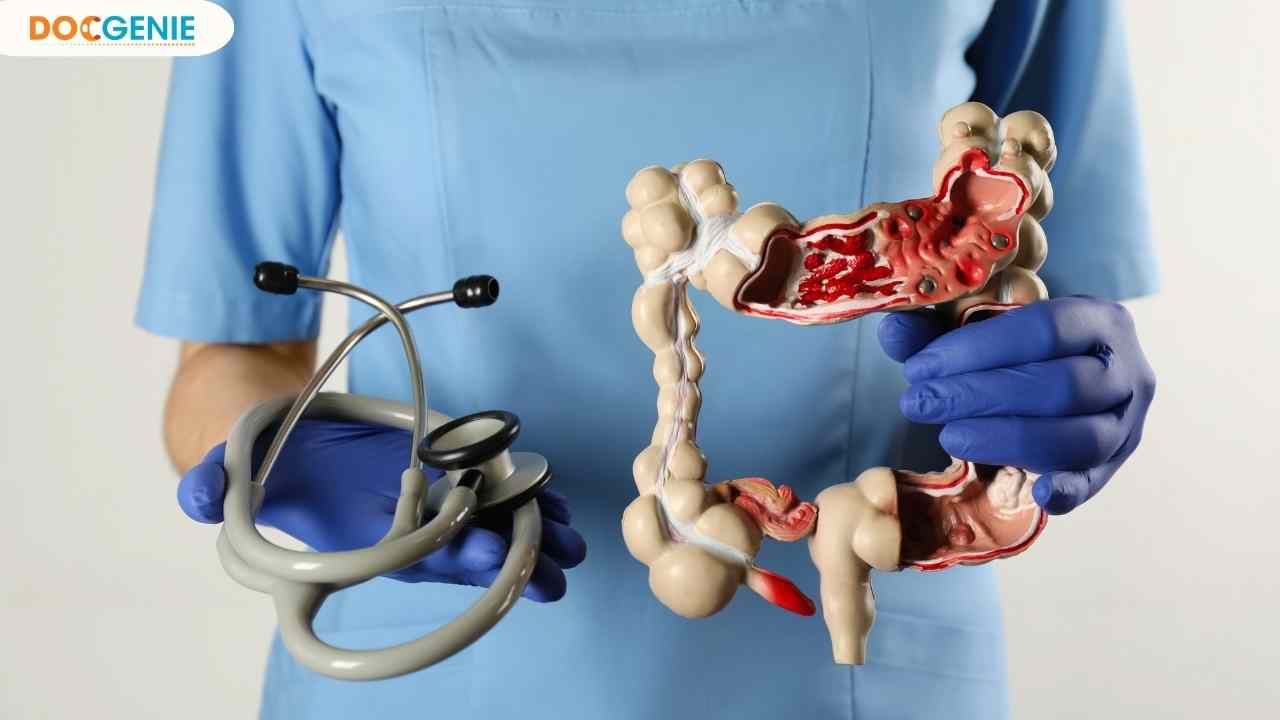Asthma: Types, Causes, Symptoms, Diagnosis Treatment
4 min read
By DocGenie , Published on - 19 January 2024Written by Dr. Rachna Kucheria (MBBS MAMC New Delhi, MD AIIMS New Delhi, MD (Family Medicine) USC California), one of the best general physicians in Delhi NCR.

Asthma is a chronic respiratory condition characterised by inflammation and narrowing of the airways, leading to recurrent episodes of wheezing, breathlessness, chest tightness, and coughing. This condition affects people of all ages and, if not managed properly, can significantly impact one's quality of life.
Asthma manifests in various forms, each with its unique triggers and characteristics:
Allergic Asthma: Often triggered by exposure to allergens like pollen, dust mites, pet dander, and mould.
Non-Allergic Asthma: Triggers for this type include stress, exercise, cold air, smoke, strong odours, and respiratory infections.
Childhood-Onset Asthma: Often begins in childhood due to genetic predisposition or exposure to allergens. It might persist or resolve as the individual ages.
Adult-Onset Asthma: This type can emerge later in life due to hormonal changes, occupational exposures, or environmental factors.
Causes of Asthma
Asthma arises from a complex interplay of genetic and environmental factors:
Genetics: Individuals with a family history of asthma or allergies are more prone to developing asthma.
Environmental Factors: Exposure to allergens, air pollution, tobacco smoke, occupational hazards (such as chemicals, dust, or fumes), and respiratory infections can trigger or exacerbate asthma symptoms.
Hygiene Hypothesis: Some theories suggest that reduced early childhood exposure to certain microbes and infections might contribute to the development of asthma.
Obesity: Obesity is linked to a higher risk of asthma due to various metabolic and inflammatory factors.
Symptoms of Asthma
The symptoms of asthma can vary in intensity and frequency. They may include:
Shortness of Breath: Difficulty in breathing, particularly during physical exertion or at night.
Wheezing: A whistling or squeaky sound while breathing, especially during exhalation.
Coughing: Often worse at night or early in the morning and may be triggered by allergens or irritants.
Chest Tightness: A sensation of constriction or pressure in the chest.
Diagnosis of Asthma
Accurate diagnosis is crucial for effective management. The following methods are used:
Medical History and Physical Examination: Detailed discussions about symptoms, triggers, and medical history.
Lung Function Tests: Spirometry measures lung function, evaluating the amount and speed of air that can be exhaled.
Peak Flow Measurements: A peak flow meter measures how fast a person can blow air out of the lungs.
Allergy Testing: Skin prick tests or blood tests to identify specific allergens triggering asthma.
Imaging Tests: X-rays or CT scans may be conducted to rule out other respiratory conditions.
Treatment of Asthma
Asthma management aims to control symptoms and prevent exacerbations. Treatment includes:
Medications:
Bronchodilators: Relax muscles around the airways, allowing easier breathing during an asthma attack.
Inhaled Corticosteroids: Reduce airway inflammation, preventing symptoms.
Leukotriene Modifiers: Help control immune system chemicals involved in asthma.
Lifestyle Modifications:
Identifying Triggers: Avoiding exposure to known triggers.
Regular Exercise: Enhances lung function and overall health.
Quitting Smoking: Essential for managing asthma effectively.
Healthy Diet: Some studies suggest certain nutrients may help alleviate symptoms.
Allergy Shots (Immunotherapy): For allergic asthma, desensitizing the immune system to specific allergens.
Emergency Inhalers (Rescue Medications): Provide immediate relief during severe attacks.
Asthma Action Plan: A personalized plan created with a healthcare provider to manage symptoms and exacerbations effectively.
Telemedicine and Asthma Management
Telemedicine plays a vital role in asthma management:
Remote Monitoring: Healthcare professionals can remotely monitor symptoms and provide guidance.
Education and Guidance: Patients receive education on managing triggers and medications.
Prescription and Adjustment of Medications: Healthcare providers can adjust treatment plans as needed.
Emotional Support: Telemedicine offers emotional support for those managing chronic conditions.
Conclusion
Asthma is a chronic condition that requires ongoing management and care. By understanding its types, triggers, symptoms, and treatment options, individuals can effectively control their asthma and improve their quality of life. Telemedicine provides an accessible and convenient platform for individuals to receive quality healthcare and guidance in managing asthma.
Always consult a healthcare professional for personalized advice and treatment plans tailored to individual needs.
If you have any concerns or queries about asthma consult a highly experienced general physician on DocGenie. All our GPs are available for online video sessions. With DocGenie you can get quality medical help from the comfort of your home, in a cost effective way.
Author Details

Dr.Rachna Kucheria
MD (Community Medicine) AIIMS New Delhi
MD (Family Medicine) USC California
Obesity Medicine Certification The American Board of Obesity Medicine
30+ Years of experience


